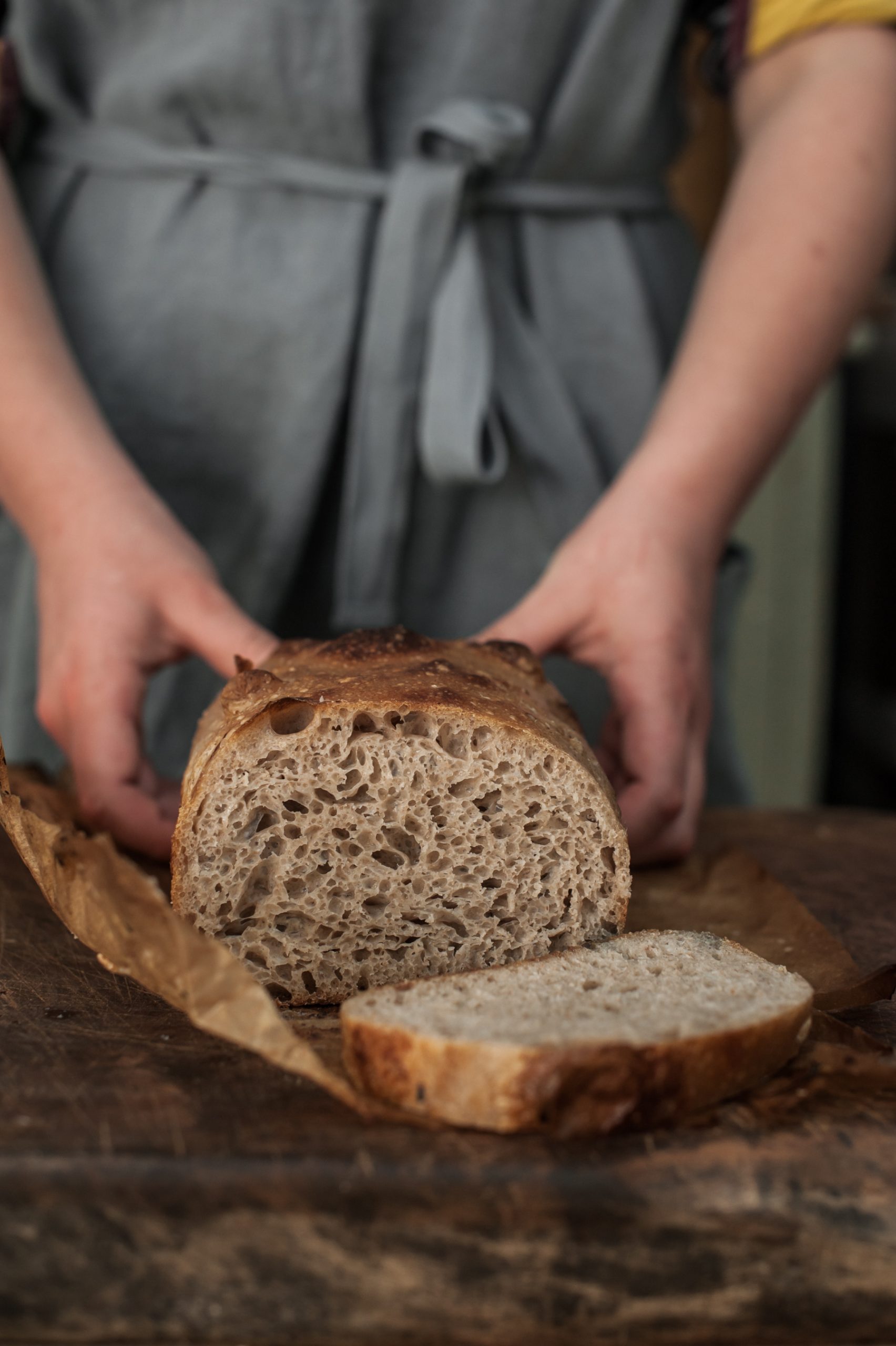Reference Number: 13
Year: 2003
Link: Link to original paper
Health: General health | Key Research Papers
Nutrition: Minerals
Summary
Summary
Aim
We compared the effects of different kinds of bread fermentation on mineral bioavailability.
Methods
Wistar rats were fed one of the following experimental diets for 21 d: control, reconstituted whole wheat flour (white flour plus bran), yeast bread, and sourdough bread. The apparent mineral absorption and intestinal fermentation were measured in each animal.
Results
Phytate contents in yeast and sourdough bread were lower than in reconstituted whole wheat flour (-52% and -71%, respectively). Total cecal pool of short-chain fatty acids, in particular the butyrate pool, was significantly increased by the ingestion of unrefined products. Calcium homeostasis was not modified by these nutritional conditions, whereas magnesium absorption was significantly greater in rats fed the control and sourdough diets than in those consuming whole wheat flour and yeast bread. Magnesium kidney excretion was slightly stimulated by sourdough bread. Compared with the control diet, iron balance was significantly reduced by reconstituted whole wheat flour diet. Yeast bread making counteracted the deleterious effects of whole wheat on iron absorption, whereas sourdough bread making enhanced iron absorption. Further, liver and plasma iron and transferrin saturation levels were lower in rats adapted to the flour diet than in other groups. Zinc absorption was strongly depressed in the presence of unprocessed reconstituted whole wheat flour in the diet, but yeast fermentation afforded a zinc assimilation comparable to the control diet, whereas the sourdough bread led to maximal zinc absorption. Copper absorption increased significantly when rats were fed the sourdough bread, whereas unprocessed whole flour depressed copper absorption (-41% versus control diet).
Significance of this study to the baker
In this study, Wistar rats were fed three types of bread, namely reconstituted whole wheat flour, yeast bread, and sourdough bread. Both the yeast bread and the sourdough bread reduced phytate levels (52% and 71% respectively), an “anti-nutrient” that can hinder the absorption of essential minerals in the small intestine. In particular, sourdough fermentation significantly increased the bioavailability of essential minerals, including iron, magnesium and zinc.
Although the study is conducted on rats and not humans, it still presents valuable insights into the mechanism by which fermentation improves the availability and absorption of minerals. More research is necessary in order to study the bioavailability of minerals in humans.
Try out our Basic Sourdough Tin Loaf and find out how easy it is to introduce essential minerals into your diet. Or discover more about sourdough with us at The Sourdough School.


